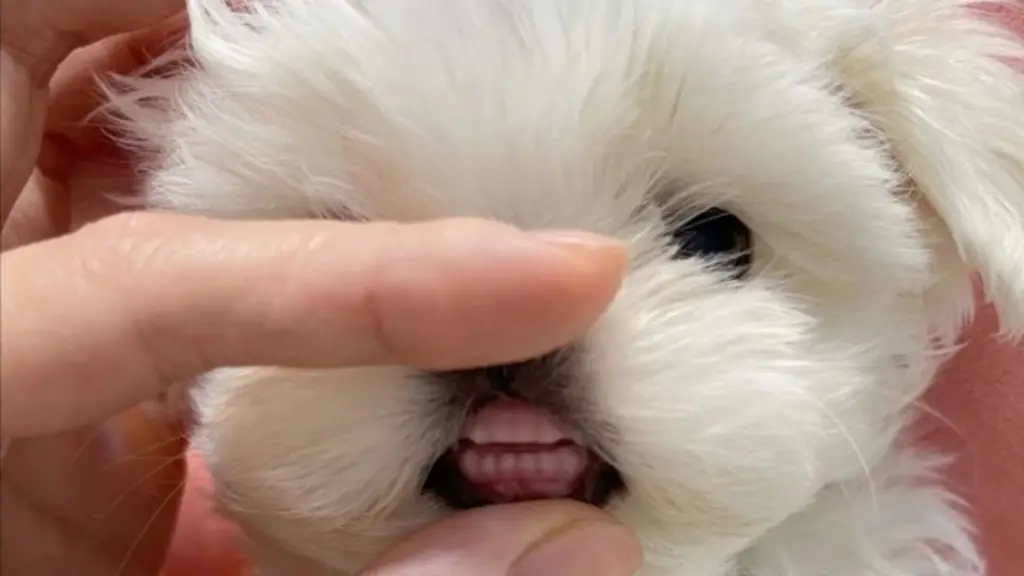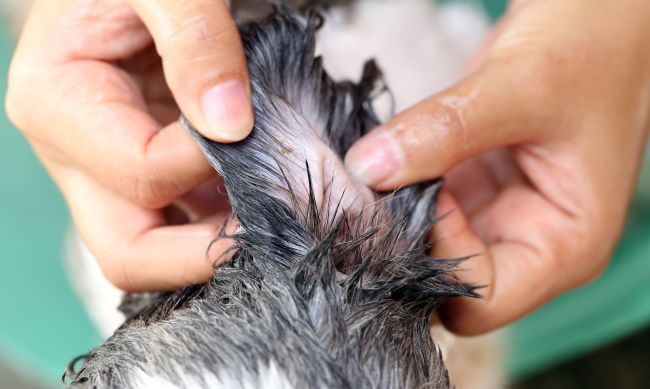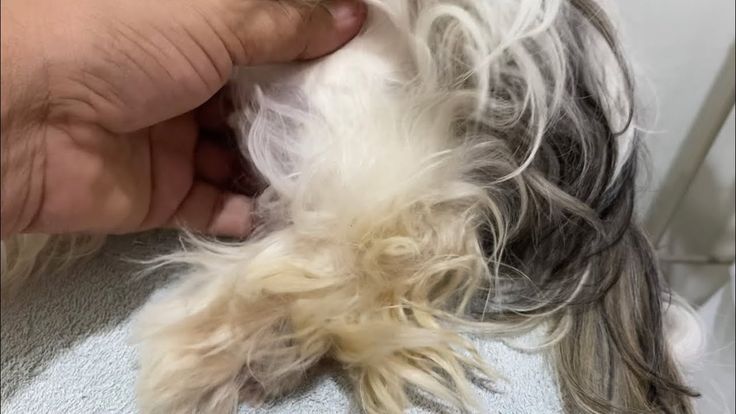
Shih Tzus, with their adorable faces and affectionate personalities, are one of the most beloved dog breeds. Their loyal nature and friendly demeanor make them excellent companions, but like all breeds, they come with their own set of health concerns. Shih Tzus are prone to specific conditions that owners should be aware of in order to provide the best care possible. Understanding these health issues early on can help prevent serious problems and ensure a longer, healthier life for your furry friend.
In this comprehensive guide, we’ll cover the top 5 health concerns every Shih Tzu owner should know about. These conditions range from eye problems to breathing issues and can impact your Shih Tzu’s overall well-being if not addressed properly. By understanding these concerns and taking preventive measures, you can help your Shih Tzu stay happy and healthy.
1. Brachycephalic Airway Syndrome

One of the most significant health concerns for Shih Tzus is Brachycephalic Airway Syndrome (BAS). This condition is common in brachycephalic breeds, or dogs with short, flat faces. While their adorable flat noses are a trademark feature, they can also lead to serious breathing problems.
Brachycephalic Airway Syndrome occurs due to anatomical abnormalities in the respiratory system. Shih Tzus with BAS may have narrowed nostrils, an elongated soft palate, or a small trachea, all of which can make it difficult for them to breathe properly. Symptoms of BAS include snorting, snoring, labored breathing, and intolerance to exercise. In severe cases, dogs may experience fainting, choking, or heat stroke due to their inability to cool down effectively.

Preventive care is crucial for managing BAS. Owners should avoid exposing their Shih Tzus to extreme heat or humidity, as these conditions can exacerbate breathing difficulties. Regular vet check-ups are also essential to monitor the severity of the condition. In some cases, surgical intervention may be necessary to widen the nostrils or shorten the soft palate to improve airflow.
Maintaining a healthy weight is another important factor in managing BAS, as excess weight can put additional strain on the respiratory system. Ensure that your Shih Tzu is getting regular, gentle exercise and a balanced diet to avoid obesity. With proper care, many Shih Tzus with BAS can lead comfortable lives, but it’s important to stay vigilant for signs of respiratory distress.
2. Eye Problems: Corneal Ulcers and Dry Eye

Shih Tzus are known for their large, expressive eyes, but unfortunately, their prominent eye shape makes them susceptible to several eye problems. Two of the most common eye issues in Shih Tzus are corneal ulcers and dry eye.
Corneal ulcers occur when the outer layer of the eye, known as the cornea, is damaged or scratched. This can happen due to trauma, foreign objects, or even rubbing their face against rough surfaces. Symptoms of corneal ulcers include redness, squinting, excessive tearing, and pawing at the eye. If left untreated, corneal ulcers can lead to infections and vision loss. Immediate veterinary attention is required if you suspect your Shih Tzu has a corneal ulcer.

Dry eye (keratoconjunctivitis sicca) is another common condition in Shih Tzus, characterized by a lack of tear production. Tears are essential for keeping the eyes lubricated and healthy, and without sufficient tear production, the eyes can become dry, irritated, and prone to infections. Symptoms of dry eye include redness, discharge, squinting, and frequent blinking. Dry eye is a chronic condition that requires lifelong management, typically through medicated eye drops that help stimulate tear production or provide lubrication.
Regular eye care is essential for preventing these issues. Owners should clean their Shih Tzu’s eyes daily to remove debris and prevent infections. Additionally, scheduling regular veterinary eye exams can help detect problems early and prevent long-term damage. Prompt treatment of any eye issues is crucial to preserving your Shih Tzu’s vision and overall quality of life.
3. Hip Dysplasia and Patellar Luxation

Joint problems are another common concern for Shih Tzus, particularly hip dysplasia and patellar luxation. These conditions can cause pain, mobility issues, and arthritis if not addressed early on.
Hip dysplasia occurs when the hip joint doesn’t fit together properly, leading to joint instability. Over time, this instability can cause pain, inflammation, and arthritis. Symptoms of hip dysplasia include limping, difficulty getting up, reluctance to jump or climb stairs, and stiffness after exercise. While hip dysplasia is often a genetic condition, factors such as obesity and excessive exercise can worsen the problem.
Patellar luxation refers to the dislocation of the kneecap (patella), which can cause the knee joint to slide out of place. This condition is common in small breeds like Shih Tzus and can range from mild to severe. Signs of patellar luxation include skipping or hopping while walking, limping, or holding up the affected leg. In some cases, the kneecap may pop back into place on its own, but more severe cases may require surgical intervention.

Preventing joint problems in your Shih Tzu starts with maintaining a healthy weight and providing appropriate exercise. Avoid high-impact activities that can strain the joints, such as jumping from high surfaces or running on hard pavement. Regular vet check-ups can help detect joint issues early and allow for prompt treatment, which may include pain management, physical therapy, or surgery in severe cases.
For Shih Tzus with existing joint problems, providing a comfortable, supportive environment is key. Orthopedic dog beds, ramps to avoid jumping, and joint supplements can all help improve your dog’s comfort and mobility. Early intervention and proper management are essential for preventing long-term pain and arthritis in Shih Tzus with joint issues.
4. Dental Disease

Dental disease is one of the most common health concerns in Shih Tzus and can have serious implications for their overall health. Shih Tzus are prone to dental issues due to their small mouths and crowded teeth, which can make it difficult to keep their teeth clean. Without proper dental care, plaque and tartar can build up, leading to gum disease (periodontal disease), tooth decay, and tooth loss.
Periodontal disease begins with the accumulation of plaque, which hardens into tartar if not removed. Over time, this can cause inflammation of the gums (gingivitis), leading to more serious infections that can damage the tissues supporting the teeth. Symptoms of dental disease include bad breath, red or swollen gums, difficulty eating, and loose or missing teeth. If left untreated, dental disease can lead to pain, infections, and even systemic health problems, as bacteria from the mouth can enter the bloodstream and affect the heart, kidneys, and liver.

Preventive dental care is essential for keeping your Shih Tzu’s teeth and gums healthy. This includes regular brushing, professional cleanings, and providing dental chews or toys that help remove plaque. Daily brushing with dog-specific toothpaste is the most effective way to prevent dental disease, but even if you can’t brush your dog’s teeth every day, any amount of brushing is better than none.
In addition to at-home care, regular veterinary dental exams and cleanings are important for maintaining your Shih Tzu’s oral health. Your vet can detect early signs of dental disease and perform professional cleanings to remove tartar buildup and prevent more serious issues. Dental care should be a lifelong commitment to ensure your Shih Tzu’s overall health and well-being.
5. Ear Infections and Skin Allergies

Shih Tzus are also prone to ear infections and skin allergies, both of which can cause discomfort and lead to more serious health problems if not treated promptly. Shih Tzus have floppy ears that can trap moisture and debris, creating an ideal environment for bacteria and yeast to grow, leading to ear infections.
Ear infections in Shih Tzus can cause symptoms such as head shaking, scratching at the ears, redness, swelling, and a foul odor coming from the ears. If left untreated, ear infections can lead to hearing loss and chronic pain. Regular ear cleaning and inspections are crucial for preventing infections. Use a vet-recommended ear cleaner to gently clean your Shih Tzu’s ears and remove any dirt or wax buildup.

Skin allergies are another common issue in Shih Tzus, often caused by environmental factors, food, or flea bites. Allergic reactions can cause itching, redness, hair loss, and skin infections, making your dog uncomfortable and prone to more serious problems. If your Shih Tzu has persistent itching or skin irritation, it’s important to work with your vet to determine the underlying cause and develop a treatment plan.
Managing allergies often involves a combination of diet changes, medication, and regular grooming. Keeping your Shih Tzu’s coat clean and free of allergens can help reduce irritation, and feeding a high-quality, hypoallergenic diet may alleviate food-related allergies. Regular grooming is also essential for maintaining healthy skin and preventing matting, which can contribute to skin problems.
Conclusion
Owning a Shih Tzu comes with the responsibility of understanding and managing their unique health needs. From breathing difficulties to joint issues and dental disease, being aware of these common health concerns can help you take preventive steps and ensure your dog stays healthy. Regular veterinary check-ups, proper grooming, and a balanced diet are all key components of keeping your Shih Tzu.


